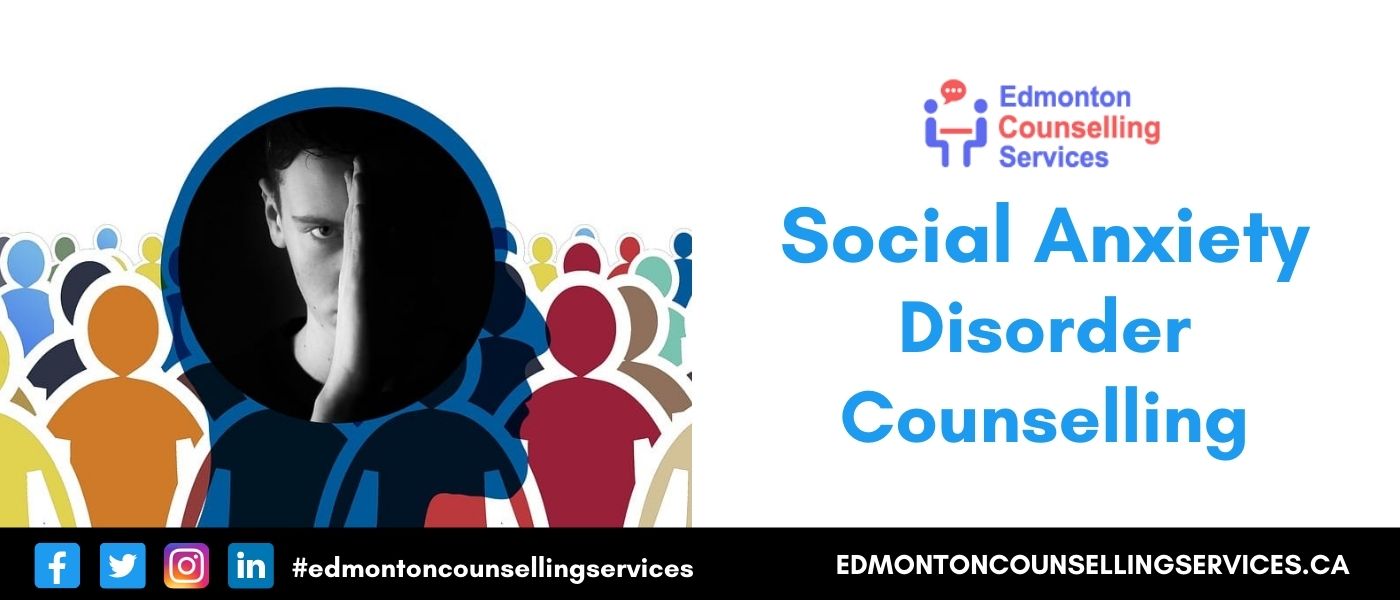Private counselling for anxiety sessions that make a difference
Exploring Different Techniques in Therapy for Anxiousness Problem for Long-term Adjustment
When dealing with stress and anxiety problems, it's vital to check out a range of therapy strategies. Each technique uses one-of-a-kind insights and devices to help you handle your symptoms effectively. You could discover that integrating strategies can yield the very best outcomes. Understanding the nuances of these strategies is essential to promoting long-term modification. What if the appropriate mix could release a new degree of psychological health for you?
Recognizing Anxiousness Problems: A Short Introduction
Anxiousness problems, which influence numerous individuals worldwide, can substantially affect day-to-day life. You might experience frustrating feelings of concern or stress that appear uncontrollable. These feelings can cause physical signs like an auto racing heart, sweating, and even dizziness. Common sorts of anxiety disorders consist of generalized anxiousness condition, panic attack, and social stress and anxiety disorder. Each has one-of-a-kind indicators, but they all share a propensity to interrupt your regular and relationships.Understanding the origin of your anxiousness is essential. It may come from genes, brain chemistry, or life experiences. Recognizing your triggers can assist you handle your actions better. It's crucial to keep in mind that you're not the only one in this battle. Many individuals encounter similar obstacles, and looking for aid is a strong action toward sensation much better. By learning concerning stress and anxiety disorders, you're already on the path to understanding and managing your problem a lot more properly.
Cognitive-Behavioral Therapy: Challenging Unfavorable Idea Patterns
In Cognitive-Behavioral Therapy, you'll begin by identifying the adverse thought sets off that add to your stress and anxiety. Once you acknowledge these thoughts, you'll service replacing them with more positive options. Together, you'll construct efficient coping approaches to help handle your anxiousness in everyday situations.
Determining Adverse Idea Triggers

Identifying the particular triggers behind your adverse thoughts can be vital in handling stress and anxiety when you experience moments of distress. Start by focusing on situations that provoke feelings of concern or worry. Is it a crowded area, a future target date, or a conversation with certain individuals? Take down these instances in a journal. This will aid you identify patterns in your reasoning. Additionally, notification physical experiences that accompany your negative ideas, like an auto racing heart or rigidity in your chest. By pinpointing these triggers, you acquire insight into what's fueling your stress and anxiety. Recognizing these connections is the very first step in testing those thoughts and eventually restoring control over your psychological responses.
Replacing Ideas With Positives
Challenging negative idea patterns is a crucial action in transforming your mindset and minimizing anxiousness. You might commonly locate on your own caught in cycles of insecurity or disastrous reasoning. As opposed to letting these ideas dictate your sensations, practice changing them with sensible alternatives or positive affirmations. For example, when you believe, "I can not handle this," move it to, "I can take care of difficulties one step at a time." This simple change can significantly influence your emotional state. Frequently recognizing and countering these adverse thoughts helps produce a healthier inner discussion. Remember, it requires time and initiative, yet consistently exercising this technique can cause long lasting adjustment, encouraging you to deal with anxiousness with restored confidence and strength.
Building Coping Techniques With Each Other
Replacing adverse ideas is just the start of taking care of stress and anxiety efficiently. To produce long-term adjustment, you require to develop coping techniques that equip you. Cognitive-Behavioral Therapy (CBT) helps you recognize and challenge those unhelpful thought patterns. Together, you and your counselor can explore how these thoughts impact your feelings and behaviors.Start by creating sensible methods, like journaling or mindfulness workouts, that enable you to face anxiety head-on. When you face your worries gradually, you'll learn to react in a different way.

Mindfulness and Acceptance-Based Approaches: Growing Present-Moment Awareness
As you navigate the intricacies of anxiety, incorporating mindfulness and acceptance-based techniques can substantially improve your capacity to cultivate present-moment understanding. By focusing on the present moment, you'll discover that you can observe your ideas and feelings without judgment (Counseling services for anxiety). This practice helps you acknowledge your anxiety without really feeling bewildered by it.Engaging in mindfulness exercises, such as deep breathing, body scans, or led reflections, permits you to ground on your own in your current experience. Acceptance-based approaches motivate you to embrace your emotions as opposed to combat versus them. When you approve your sensations, they lose their power over you.Incorporating these methods right into your everyday routine can transform how you respond to anxiety. You'll develop strength and find out to browse difficult situations with greater convenience. Ultimately, growing present-moment awareness lays the structure for long lasting adjustment, equipping you to lead a much more meeting life
Direct Exposure Treatment: Challenging Fears Slowly
Exposure therapy assists you confront your worries in a gradual means, making it much less overwhelming. You'll discover techniques to encounter anxiety-provoking circumstances detailed, while additionally building coping strategies to handle your reactions. This method empowers you to take control and reduce stress and anxiety gradually.
Gradual Direct Exposure Techniques

When encountering anxiousness, slowly confronting your worries can be a powerful way to gain back control. This strategy, referred to as steady direct exposure, involves gradually revealing on your own to the circumstances or items that cause your stress and anxiety. Start with less intimidating circumstances and slowly work your way approximately even more difficult ones. If you're afraid of public talking, you may start by talking in front of a mirror, then advance to sharing thoughts with a buddy, and ultimately deal with a little team. Each action helps desensitize you to the anxiety, developing your confidence gradually. Bear in mind, it's vital to speed yourself and celebrate small triumphes as you move through this process, reinforcing your ability to manage stress and anxiety successfully.
Structure Coping Strategies
Building effective coping methods is important for handling stress and anxiety, specifically as you face your fears slowly - Counseling services for anxiety. One effective technique is exposure therapy, where you start by facing your concerns in a controlled way. Begin with much less frightening scenarios and slowly work your method up to even more tough situations. This steady exposure assists desensitize you to stress and anxiety causes, making them much less overwhelming.Incorporate leisure strategies, such as deep breathing or mindfulness, to calm your mind throughout exposure. Track your progress, look at this web-site celebrating small victories in the process to increase your self-confidence. Bear in mind, it's all right to take your time; the goal isn't perfection but constant renovation. By developing these strategies, you'll empower on your own to navigate anxiety and welcome life more completely
Psychodynamic Therapy: Revealing Origin of Anxiety
Psychodynamic treatment discovers the subconscious mind, exposing the origin causes of your anxiety. By examining your ideas, feelings, and previous experiences, this method helps you discover underlying conflicts and unresolved concerns that might contribute to your current stress and anxiety. You'll collaborate with a specialist to check out childhood years experiences, relationships, and psychological patterns that shape your responses today.As you gain understanding into these much deeper layers of your psyche, you'll begin to recognize how past events influence your existing behavior. This understanding can result in catharsis, permitting you to process feelings you may have suppressed.Through the healing partnership, you can also determine defense reaction that might have created with time, using a more clear course to transform. Inevitably, psychodynamic treatment furnishes you with the tools to resolve your anxiety at its core, advertising long-term improvement in your emotional wellness.
Integrative and Holistic Techniques: Incorporating Strategies for Greater Effectiveness
Incorporating different restorative strategies can boost your journey towards taking care of anxiety much more efficiently. By combining aspects from cognitive-behavioral therapy, mindfulness methods, and holistic strategies, you can create a customized approach that resolves your one-of-a-kind demands. You may make use of cognitive-behavioral techniques to challenge adverse idea patterns while including mindfulness exercises to ground on your own in the existing moment.Additionally, discovering alternative methods such as yoga or reflection can advertise leisure and lower anxiety symptoms. This mix allows you to establish greater self-awareness and resilience.Experimenting with these varied techniques can help you discover what resonates most with you. Bear in mind, it's concerning finding a synergy that functions, instead than staying with a solitary technique. This integrative method not just offers instant alleviation however likewise fosters long-lasting abilities for taking care of stress and anxiety, encouraging you to reclaim control over your life.
The Duty of Assistance Systems: Building Strength Through Connection
While it could appear that managing stress and anxiety is a solitary journey, having a solid support system can play a crucial duty in your resilience. Bordering yourself with compassionate buddies, family members, or assistance groups creates a safe space where you can freely share your feelings and experiences. You remind on your own that you're not alone in this struggle.These relationships supply inspiration and can offer useful coping approaches that have actually functioned for others when you attach with others. It's also a chance to obtain point of view; close friends can assist you see scenarios differently, lowering feelings of isolation.Moreover, psychological support fosters a sense of belonging, which can substantially relieve anxiety signs. By leaning on your support group, you can build durability and tackle challenges better. Bear in mind, connecting for aid signifies stamina, and it can make all the difference in your trip towards taking care of stress and anxiety.
Frequently Asked Inquiries
What Are the Usual Signs And Symptoms of Anxiety Disorders?
You might experience restlessness, exhaustion, difficulty focusing, irritability, muscular tissue stress, and rest disturbances. Physical signs can include fast heartbeat, sweating, and trembling. Acknowledging these indicators early can aid you look for suitable support and treatment.
How Much Time Does Therapy Generally Last for Stress And Anxiety Disorders?
Therapy for anxiousness conditions commonly lasts anywhere from a couple of weeks to numerous months. It really depends upon your individual needs, progress, and the techniques your specialist utilizes to aid you handle your anxiety effectively.
Can Medication Be Made Use Of Together With Therapy for Anxiousness?
Yes, drug can definitely be used along with treatment for stress and anxiety. Combining both strategies often enhances treatment efficiency, aiding you take care of signs while exploring underlying concerns with therapy (Counseling services for anxiety). Always consult your doctor for tailored guidance
Are There Self-Help Techniques for Handling Stress And Anxiety?
Yes, there are numerous self-help techniques for taking care of anxiety. You can exercise mindfulness, take part in regular workout, maintain a balanced diet regimen, establish a routine, and utilize deep breathing methods to help in reducing stress and anxiety symptoms efficiently.
Just how Do I Know if I Need Expert Aid for Stress And Anxiety?
